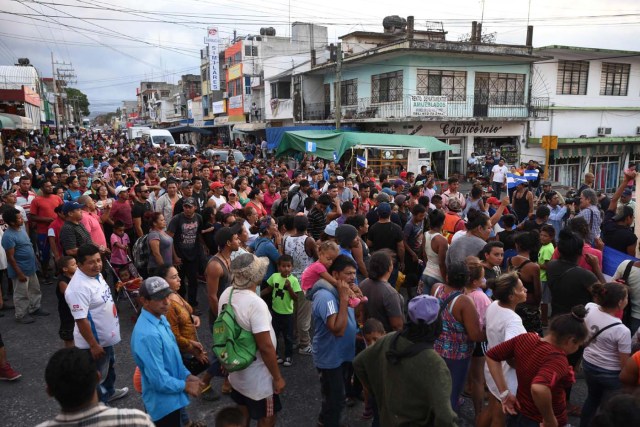
/ AFP PHOTO / VICTORIA RAZO
El “Viacrucis Migrante” de más de 1.000 centroamericanos que recorre México y que ha enfurecido al presidente estadounidense Donald Trump terminará su recorrido en la capital mexicana y no en la frontera con Estados Unidos, informó este miércoles la ONG Pueblo sin Fronteras.
“Nuestro trabajo termina en Ciudad de México y si otras personas necesitan acompañamiento, tenemos equipo de apoyo en la frontera, pero ellos tendrán que viajar por su cuenta”, dijo a la AFP Irineo Mujica, director de Pueblo sin Fronteras, que desde 2010 realiza este simbólico viacrucis para visibilizar el drama de los migrantes a su paso por México.
Decenas de migrantes centromericanos que viajan en la caravana, que se encuentra desde el fin de semana en la comunidad de Matías Romero del sureño estado de Oaxaca, se preparaban ya para seguir por su cuenta el recorrido, algunos de ellos con visas para transitar por México durante 30 días.
Este año, explica Mujica, la principal dificultad ha sido el número de personas pues arrancaron con cerca de 1.500 en Tapachula, fronteriza con Guatemala, el 25 de marzo.
La intención inicial era llegar a la frontera, pero la dimensión de la caravana los ha superado, reconoce Mujica.
“Viajan demasiados niños, 450, hay muchos bebés y subirnos al tren, como hacíamos antes, sería una locura”, añade Mujica.
Luego de que medios conservadores estadounidenses destacaran el andar de más de 1.000 centroamericanos, muchos de ellos con ropas andrajosas, por el sur de México rumbo a la frontera norte, Trump no ha dejado de fustigar a México para que detenga a la caravana y hasta analiza desplegar a la Guardia Nacional en la frontera.
El 80% por ciento de los que integran la caravana son hondureños y el resto salvadoreños, nicaragüenses y guatemaltecos.
AFP
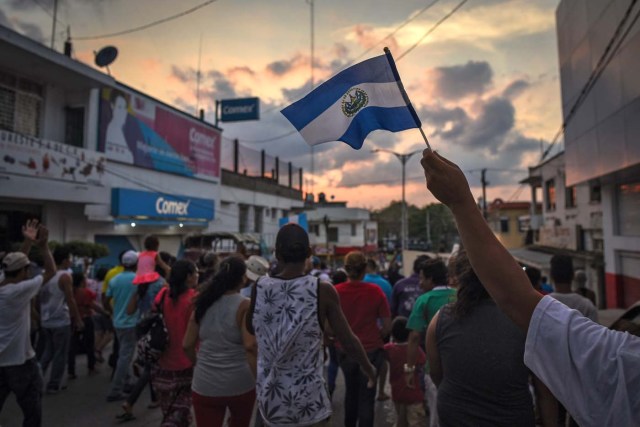
/ AFP PHOTO / VICTORIA RAZO
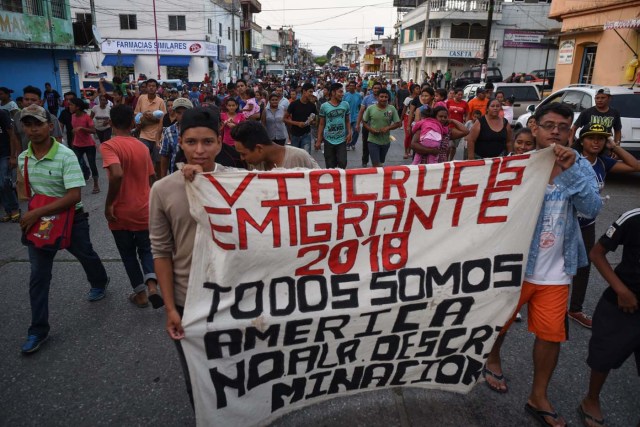
/ AFP PHOTO / VICTORIA RAZO
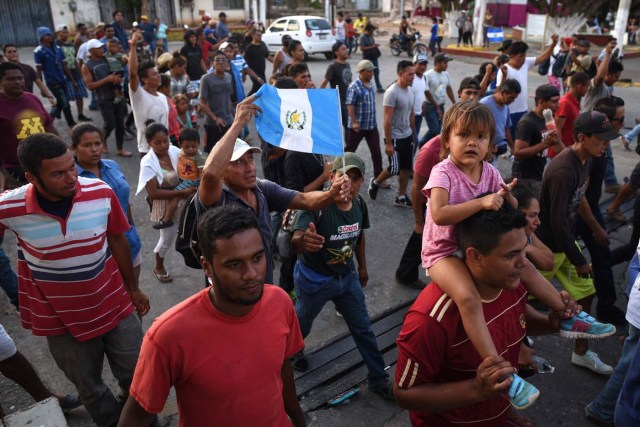
/ AFP PHOTO / VICTORIA RAZO
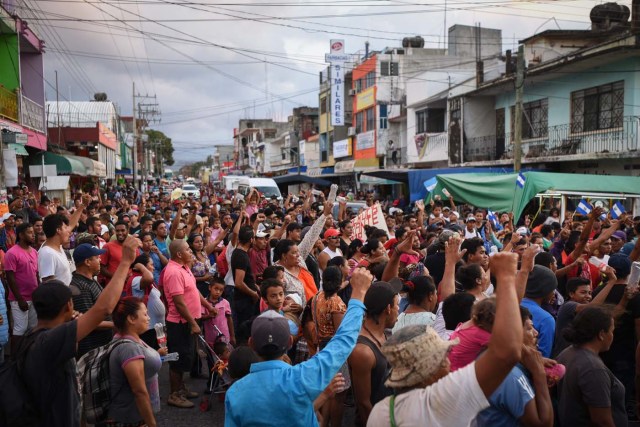
/ AFP PHOTO / VICTORIA RAZO
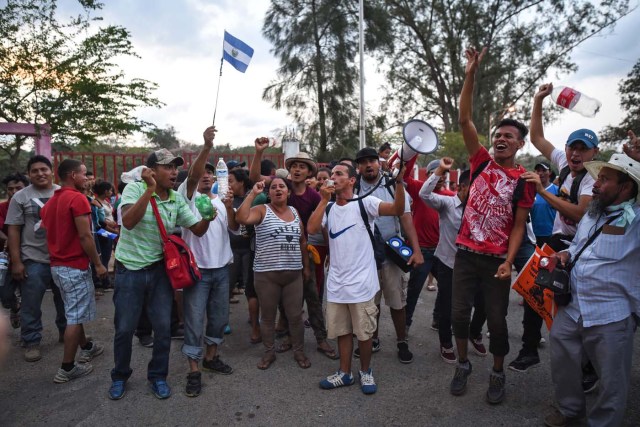
/ AFP PHOTO / VICTORIA RAZO

